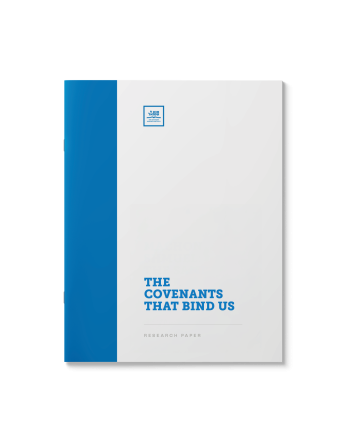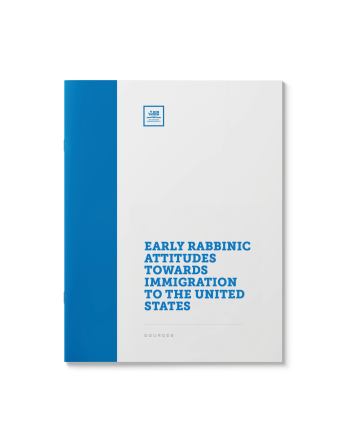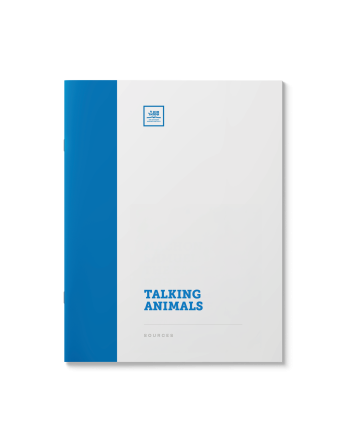The Devastation of Midyan: Justice or Genocide?
$39.00
The final battle of Moshe’s lifetime is known as the war with Midyan. Moshe conveyed the divine instruction to take the lives of all the male Midyanite minors. Can this paradigm be reconciled with modern-day norms of war?
(updated)
| Language | English |
|---|---|
| Paper Type | Research Paper |
| Pages | 6 |
Related Products
The Biblical account of Sarah’s treatment of Hagar is well-known. How do the classic commentators and other authorities understand her behavior? Is she to be criticized or vindicated? What moral defense can be offered for Sarah banishing Yishmael?
A factual review of our forefather’s wedding and marriage arrangements. How
old was Ya’akov when he got married? How old were Bilhah and Zilpah? Were Rochel and
Leah twins? Why did Ya’akov work for seven years for each of them?
The sanctity and celebration of human life in Judaism can be said to be commensurate with the aspiration for death amongst our enemies.
The recent headlines reporting that some Israeli MDA first responders provide emergency medical care for injured terrorists, raises some serious ethical dilemmas.
What is the Torah’s position?
A detailed exploration of these laws as they pertain to Bnei Noach and Gerei Toshav; the laws of Lo Sichanem, Rodef, Moser and more.
Jews have always cherished the land of Israel, and yearned to be buried there upon their passing. They also seek to have their grave marked honorably, so as to enable loved ones to visit and pray. Yet Moshe Rabbeinu merited none of these, buried in “the Valley of Moab,” where “no person knows the place of his burial unto this day”.
Why was he assigned this fate? Does this somehow reflect his life’s unparalleled accomplishments?
(Hebrew)
There are many covenants between G-d and the Jewish people described in the Torah, such as the covenants with Avraham, before Matan Torah, before entering Eretz Israel, as well as many others. What is the significance of each covenant according to the traditional and mystical meanings?
Formulated as a series of answers, rebuttals and rejoinders, the information in this document will be invaluable to you when studying this important subject. Why did G-d instruct Moshe to take the Staff? If he was not to strike the rock, why did it issue forth water? How could Moshe defy G-d’s explicit instructions?
Dovid Hamelech remains one of the most famous yet most mysterious men in Jewish history. A king and a sage, a warrior and a poet, his accomplishments seem to be a cluster of contradictions. Study the life of one of Israel’s greatest kings, with an emphasis on the viewpoint of Chassidus.
Land of the free. During the 19th century, unprecedented numbers of European Jews emigrated to the Free World. What are the earliest rabbinic sources that address the challenges facing the new immigrants? Were there any positive sentiments expressed by leading Torah authorities about the freedom and opportunity that America afforded? Also, did King Solomon bring gold from the “Goldene Medina”?
Man was set apart from the animal kingdom by his ability to speak. How were Chava and Bilam able to converse with the snake or donkey? Were these conversations real?
Having survived the Great Flood, Noach was comforted by the sight of the dove clutching an olive leaf, the proverbial sign of peace.
What is unique about the olive leaf? What was the message it conveyed to Noach? What relevant lesson can be gleaned from this incident?
The State of Israel as a culmination of the Zionist enterprise represents a unique ideological school of thought. To what extent is this ideology compatible with Judaism in general and the philosophy of Chabad in particular?
From its inception, the dream of a modern autonomous Jewish homeland generated both excitement and controversy. How did Gedolei Yisroel and our Rebbeim react at the time? Did the Rebbe’s stance differ in any way from that of his predecessors?
What practical bearing do our ideological differences have? How do we provide our best support for our brothers in Eretz Yisrael while maintaining the integrity of our own principles? How do we navigate Religion and State in Eretz Yisrael?
This paper features a comprehensive overview of the Chabad attitude to the State of Israel, the background and battles of Zionism, ischalta d’Geula, and a host of related topics, including many practical hora’os from the Rebbe.
Sadly, antisemitism is as much a part of Jewish life as anything else. So what does the Torah say about this regular fixture of our lives? How does Chassidus explain this ancient hatred? Can we do anything about it or is this part of Jewish destiny?






![Medical Intervention for Terrorists - To Treat or Not to Treat? [New!]](https://catalog.myjli.com/wp-content/uploads/2025/05/SAMSMIT-350x448.png)








